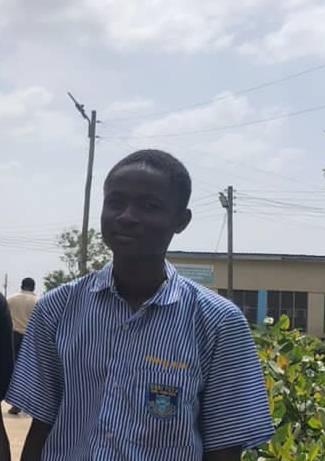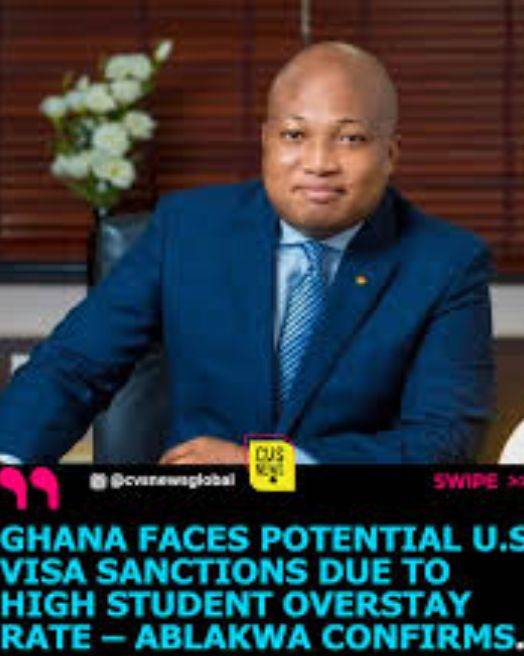Why Ghanaian Students Don’t Want to Come Back And Honestly, Who Can Blame Them?
More and more Ghanaian students are choosing to stay abroad after studying, and the reasons run deeper than you might think.

It Always Starts the Same Way
You finally get that admission letter. Smiles everywhere. Aunties praying. Friends celebrating. Your parents? Beaming with pride, but deep down? Secretly hoping you don’t come back.
Let’s be real.
In Ghana, going abroad isn’t just a personal achievement, it’s a carefully planned exit strategy. A quiet escape from disappointments. From endless promises that never materialize. From the “work hard and succeed†story that doesn’t add up for most.
And now? The world is starting to notice.
The United States is threatening visa sanctions. Why? Because over 21% of Ghanaian students who study there never return. The U.S. sees that as a problem. But the real problem? It’s right here at home.
It’s Not Just About Overstaying. It’s About What They’re Running From
Let’s stop sugarcoating it.
People aren’t glued to America or Europe because they hate Ghana. They stay because they’re afraid to come back to… nothing.
We’ve all seen it:
University graduates selling SIM cards on the street.
Friends applying for jobs for years with no response.
Talented young people stuck in a system that feels broken.
So when someone finally breaks free, earns that degree, maybe lands a job, maybe just breathes different air, we expect them to rush back?
Back to what? Back to the hustle? Back to a system where connections matter more than competence?
Would you?
“Stay and Build Ghana� Easier Said Than Done
I want to believe in Ghana. So do many of us.
We post about it. We tweet passionately: “One day e go better.†But hope alone? Hope doesn’t fill empty pockets. Hope doesn’t rebuild broken systems.
And let’s be clear, life abroad isn’t perfect. There’s racism. There’s culture shock. There’s loneliness.
But abroad? There’s structure. Functioning systems. A real chance to grow, to build something.
Meanwhile, back home? We’re still debating electricity. We’re still watching our brightest feel like strangers in their own land.
We Love Ghana, But Love Isn’t Always Enough
This is the hardest part to admit: We love Ghana. Deeply.
The food. The music. The culture. The energy when the lights stay on and Accra feels unstoppable.
That love is real. But even love gets exhausted. Love doesn’t magically fix broken systems. Love doesn’t pay bills or create jobs.
Sometimes? Love alone isn’t enough to make people stay.
What Needs to Change : Beyond Speeches
We’ve heard enough speeches. We’ve seen enough hashtags. It’s time for tangible change:
Jobs that actually pay — not survival gigs.
A system that rewards talent — not just the well-connected.
A future that feels like a promise — not a gamble.
Until then? We shouldn’t be shocked when young people overstay visas. It’s not rebellion. It’s survival.
Let’s Be Real
This isn’t about glorifying life abroad or bashing Ghana. Both have their flaws.
But if we truly want young people to come back, to stay, to build, we have to meet them halfway. We have to give them a reason.
Right now? People aren’t overstaying because they hate Ghana. They’re overstaying because they can’t afford to gamble with their future, again.
And honestly… who can blame them?
Let’s Talk Honestly
If you had the opportunity, would you stay? Would you leave? Or are you, like so many of us, stuck somewhere in between, torn between love for home and fear of what waits here?
Stop pretending and have the real conversation.
Drop a comment. Share your story. Be honest finally.
Final Thoughts
At the end of the day, Ghanaian students choosing to stay abroad isn’t the disease, it’s a symptom.
If we want change, it starts with creating real opportunities. Until then, let’s not blame young people for choosing survival.




No comments yet
Be the first to share your thoughts!